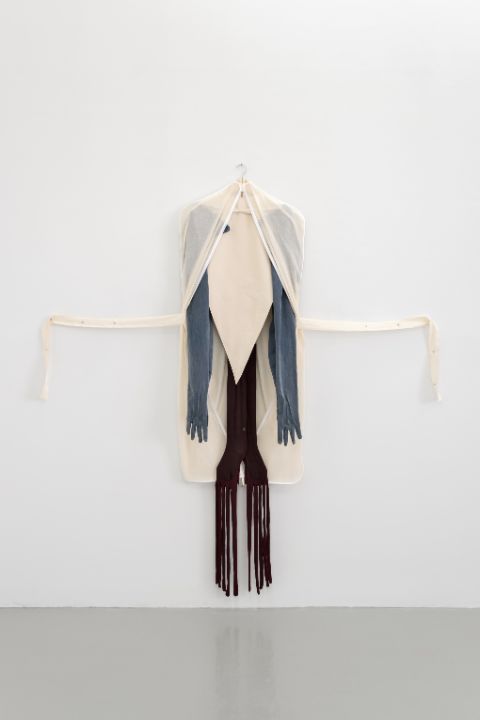Bruno Zhu

Photo: Sebastian Black. Courtesy of the artist and Kimberly-Klark, Queens, New York
Bruno Zhu was trained in fashion design and developed his artistic practice at A Maior, his parents’ shop selling Chinese fashion and household wares in Viseu, Portugal, where they migrated to from China before Zhu was born. A Maior not only provided the impetus for his work, he also curated shows there with its employees as well as local and international artists. Zhu’s practice to date has been diverse, encompassing textile, photography, installation, and writing. It engages, albeit subtly, with an equally diverse set of themes including, among others, desire, consumption, commodified and racialized selves, objectification, and autobiography. Recently, issues surrounding identity politics, racism, and Portugal’s colonial history have become an urgent aspect of Zhu’s art and writing in light of his own experiences in the Portuguese art scene. Fashion, too, continues to play a central role, with the artist using clothing to explore failure and the death of lives, performance, movement, and goods and also as a vessel for reincarnation. Man in the Closet is one such work that evokes the tensions of (in)visibility and a refusal to be boxed into specific categories or identities, while functioning as an almost totemic figure—one derived from the artist’s personal experience and incorporating references to queer culture more broadly.
Work in the exhibition: Man in the Closet (2017–23), textile work, men’s trousers, wool socks, canvas, cheesecloth, dimensions vary. Courtesy of the artist